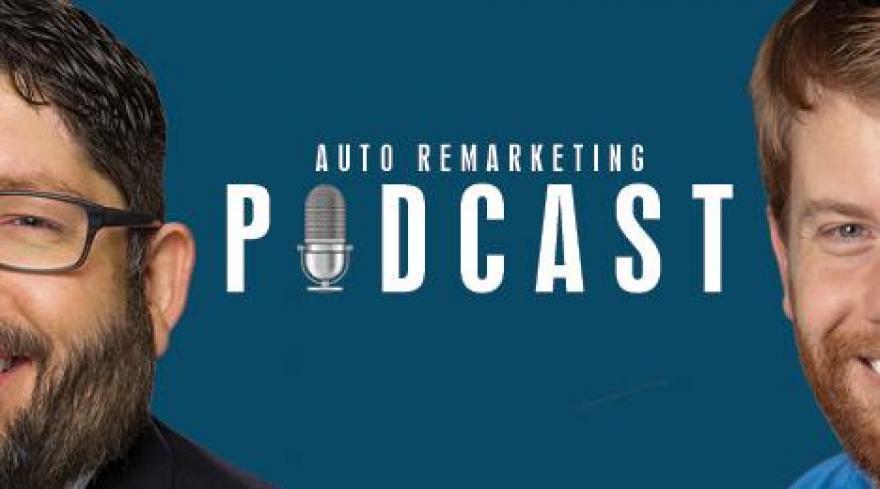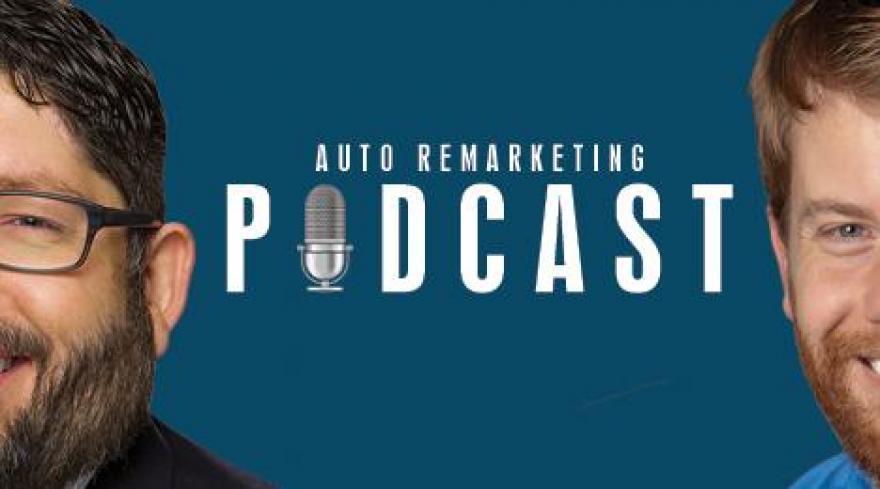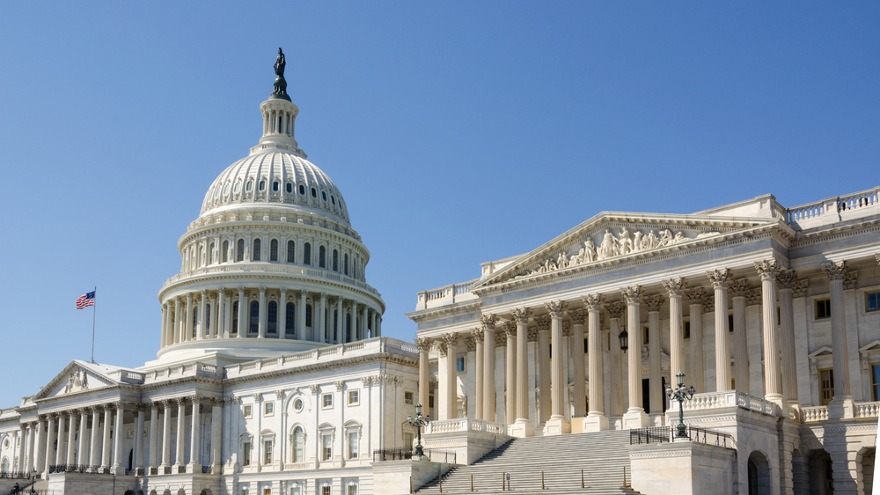It’s likely not unusual for underwriting departments at subprime auto finance companies to see applications from individuals who work multiple jobs to generate their income.
Well, according to a new Bankrate.com report, that’s not just common in the subprime space. “Side hustles” permeate much of the American employment arena.
The report indicated nearly half of U.S. workers — 45% to be exact — say they earn extra income on the side. Site officials explained this figure includes both full-time (43%) and part-time (51%) workers.
Bankrate.com found the average otherwise employed side hustler brings in an extra $1,122 per month by working 12 hours a week. For most (66%), the extra money accounts for less than half of their monthly earnings.
However, three in 10 say the extra income is needed to pay regular living expenses. Slightly more (34%) say they use the money for discretionary spending, and 27% say it’s to boost their savings.
“Though the economy is strong, many Americans are finding it necessary to work on the side in order to make ends meet,” Bankrate.com analyst Amanda Dixon said in a news release. “The good news is, whether you need to put in extra hours to pay the bills or pad your savings account, finding a side gig has never been easier.”
Bankrate.com noted that most side hustlers, especially younger adults, view technology as a vital part of the gig economy.
More than three-quarters (78%) say technology plays a role in their ability to earn extra money, including 51% who say it plays a major role. The site said 84% of millennial side hustlers (ages 23-38) and 79% of Gen Xers with side jobs (ages 39-54) say technology helps them earn money on the side, compared to 67% of Baby Boomers (ages 55-73).
Bankrate.com added that millennials are the most likely generation to take advantage of the gig economy, overall. About half (48%) of 23- to 38-year-olds say they earn extra money on the side. That number drops to 39% of Gen Xers and 28% of Baby Boomers.
The site went on to mention 40% of millennial side hustlers say they earn at least half of their income from side jobs, compared to 22% of Gen Xers and 9% of Baby Boomers. Millennials are also more likely than their elders to say that the additional money is income for savings (31% versus 16% of Gen Xers and 18% of Baby Boomers).
Older generations, on the other hand, are more inclined to use the extra money as disposable income for spending (40% of Gen X and 38% of Baby Boomers, versus 31% of millennials), according to the report.
For many, Dixon highlighted that a side hustle not only represents a way to earn extra money, but also an outlet to explore — and profit from — interests beyond their day jobs. In fact, she pointed out that more than one-quarter (27%) say they are more passionate about their side hustle than their main job/career.
“Side hustles are obviously a great way to earn extra money, but they also provide an opportunity to turn a passion or hobby into something more than that,” Dixon said. “Technology has leveled the entrepreneurial playing field, so there’s no limit to what a good idea and hard work can produce.”
The complete report can be downloaded here.
Coinciding with the release of its second-quarter performance, Consumer Portfolio Services also discussed a structural reorganization of sales representatives and origination staff to cater to dealerships in its origination network more effectively.
CPS reported this week that it closed the second quarter with more than 8,000 active dealers booking paper with the subprime finance company. CPS leverages a staff of approximately 250 employees located at three branches in Irvine Calif., Las Vegas and Orlando, Fla.
In an effort to improve dealer service and product “usability,” CPS said in a message to SubPrime Auto Finance News that it has reorganized its staff. Prior to making this alignment change, CPS explained dealers would generally be connected to the next available buyer from a pool when they contacted the finance company. With the re-alignment in place, CPS said dealers will work with the same staff on each of their applications and loan packages.
“Our goal is to have dealers working with the same loan origination staff at CPS whenever possible,” said Teri Robinson, who is senior vice president of originations at CPS.
“We expect this move to strengthen dealer relationships and build familiarity for dealers with CPS, plus help our staff get to know dealers better,” Robinson continued. “Dealers need support, flexibility and quick answers to their questions when they contact CPS. We’re confident they will like our improved alignment strategy.”
Q2 results as revenue drops, costs decrease
Also this week, CPS announced earnings of $1.8 million, or $0.08 per diluted share, for its second quarter that ended June 30. This figure compares to net income of $3.2 million, or $0.13 per diluted share, in the second quarter of last year.
The company reported its Q2 revenues came in at $86.3 million, a decrease of $13.0 million, or 13.1%, compared to $99.4 million for the second quarter of 2018. However, the company trimmed its costs as CPS said its total operating expenses for the second quarter were $83.6 million, compared to $94.7 million a year earlier.
CPS noted its Q2 pretax income for the second quarter of 2019 was $2.8 million, which represented a drop of 40.5%.compared to pretax income of $4.7 million in the second quarter of last year.
For the first six months of 2019, CPS tallied up its total revenues of $174.6 million, which were down compared to $202.9 million for the six months of 2018. That’s a decrease of approximately $28.4 million or 14.0%.
CPS pointed out its total expenses for the first six months of 2019 were $169.1 million, a decrease of $24.6 million, or 12.7%, compared to $193.7 million for the six months of 2018.
The company’s pretax income for the first six months of 2019 came in at $5.4 million, compared to $9.2 million for the same period in 2018. Net income through the first half of 2019 was $3.5 million compared to $6.3 million a year earlier.
During the second quarter of 2019, CPS said it purchased $250.1 million of new contracts compared to $243.0 million during the first quarter of 2019 and $214.7 million during the second quarter of last year.
The company's receivables totaled $2.399 billion as of June 30, an increase from $2.393 billion as of March 31 and $2.329 billion as of June 30 of last year.
CPS mentioned its annualized net charge-offs for the second quarter constituted 7.82% of the average portfolio as compared to 7.58% for the second quarter of last year. Its delinquencies greater than 30 days (including repossession inventory) represented 14.83% of the total portfolio as of June 30 as compared to 10.07% as of June 30 last year.
“We are pleased to report that this quarter represented our fourth consecutive quarter of year over year increases in quarterly originations volume,” said Charles Bradley, Jr., chairman and chief executive officer.
“In addition, since Q3 of 2018, we have seen consecutive quarterly increases in the coupon rates on new receivables and lower fees paid to dealers,” Bradley added in a news release.
CPS announces $243.5M senior subordinate asset-backed securitization
And in other company news released this week, CPS also announced the closing of its third term securitization of 2019. The transaction is CPS’ 33rd senior subordinate securitization since the beginning of 2011 and the 16th consecutive securitization to receive a triple-A rating from at least two rating agencies on the senior class of notes.
In the transaction, the finance company qualified institutional buyers purchased $243.5 million of asset-backed notes secured by $244.1 million in automobile receivables originated by CPS.
The sold notes, issued by CPS Auto Receivables Trust 2019-C, consist of six classes. Ratings of the notes were provided by Standard & Poor’s and DBRS, and were based on the structure of the transaction, the historical performance of similar receivables and CPS’s experience as a servicer.
| Note Class |
Amount
(in millions) |
Interest Rate |
Average Life
(years) |
Price |
S&P Rating |
DBRS Rating |
| A |
$105.1 |
2.55% |
.67 |
99.99782% |
AAA |
AAA |
| B |
$41.5 |
2.63% |
1.79 |
99.99392% |
AA |
AA |
| C |
$35.4 |
2.84% |
2.50 |
99.97830% |
A |
A |
| D |
$31.2 |
3.17% |
3.31 |
99.99390% |
BBB |
BBB |
| E |
$24.7 |
4.30% |
4.05 |
99.98450% |
BB- |
BB |
| F |
$5.6 |
6.94% |
4.14 |
99.98681% |
B |
B |
CPS said the weighted average coupon on the notes is approximately 3.36%.
The finance company mentioned the 2019-C transaction has initial credit enhancement consisting of a cash deposit equal to 1.00% of the original receivable pool balance and over-collateralization of 0.25%.
CPS added the transaction agreements require accelerated payment of principal on the notes to reach overcollateralization of the lesser of 6.00% of the original receivable pool balance, or 16.00% of the then outstanding pool balance.
The company went on to say the transaction utilizes a pre-funding structure, in which CPS sold approximately $161.1 million of receivables at inception and plans to sell approximately $83.0 million of additional receivables during August.
This further sale is intended to provide CPS with long-term financing for receivables purchased primarily in the month of July, according to the company.
Colonnade Securities offered an extended examination of the below-prime auto finance industry this week, identifying what the independent investment bank focused on the financial services and business services sectors believes are four factors currently impacting the space most.
According to the report, the fundamentals of the below-prime auto finance industry have not deteriorated significantly, but the sector is now out of favor with traditional financial sponsors. In part, Colonnade cited four factors, including:
— Past aggressive underwriting has led to elevated delinquencies for some firms
— Private equity investors have hit the horizon of disappointment
— Bifurcation of the below-prime auto finance sector
— Access to capital
Colonnade explained a wave of investments in 2010 through 2012 led to heightened competition and looser underwriting, followed by a spike in delinquencies and losses. The result is a significant decrease in new equity capital available to the sector, according to the report.
“While banks that lend to the below-prime auto finance industry are more cautious and selective, senior debt availability remains strong for performing industry participants due, in large part, to the asset-backed securities market,” Colonnade said in a news release.
The investment bank added in the report, “The impact of liberal standards has been revealed in the performance of the asset-based securities issued by a few significant issuers.
Colonnade contends the industry has bifurcated between large providers with total receivables of more than $300 million and small below-prime auto finance firms. Colonnade insisted those large, well-run players continue to grow profitably while a few smaller firms have failed.
“These larger firms have invested in automated credit decisioning and data analytics that reduce static pool losses,” Colonnade said in its report. “The larger firms are also able to hire and retain skilled leaders and technical people needed to implement a tech-forward operation. “In addition, large firms have made significant investments in compliance staff and infrastructure.
“The second segment of the industry consists of smaller players that have not achieved critical mass and do not have the resources to invest in credit/analytic technology,” the bank continued in the report.
Colonnade recapped that few M&A transactions have been completed in recent years, although there have been some capitulations (business exits/liquidations). Several of the large, successful firms are still seeking change of control as their private equity owners run through their investment horizons.
“Sponsor-owned firms will eventually be sold due to the 10-year liquidation schedule of the typical private equity fund,” Colonnade added in its report.
Colonnade expects to see an uptick in mergers and acquisitions activity in the industry over the next 18 months as private equity investors are forced to take their properties to market.
“There will be transactions, but the valuations are unlikely to meet the original expectations of the investors,” the investment bank said in a news release. “These market dynamics will create compelling investment opportunities for long-term, yield-oriented investors, such as family offices and other non-traditional financial sponsors.”
Davis & Gilbert partner Joseph Cioffi reiterated his position that subprime auto finance portfolio performance is expected to deteriorate soon.
Cioffi first made that assertion through a 360-degree market study released by Credit Chronometer, a microsite he authors. Nick asked him to elaborate during this podcast recorded during the National Automotive Finance Association’s annual conference in June in Plano, Texas.
The full episode can be found below.
Download and subscribe to the Auto Remarketing Podcast on iTunes or on Google Play.
You can also listen to the latest episode in the window below.
Catch the latest episodes on the Auto Remarketing Podcast homepage and on our Soundcloud page.
Please complete our audience survey; we appreciate your feedback.
Finance companies, especially ones that participate in the non-prime and subprime spaces, often gather as much information as possible during the underwriting process before a funding decision, making the potential of alternative data even more dramatic.
George Coutros, the head of analytics, product and data management at Clarity Services, described how much more robust alternative data is nowadays. Coutros joined Nick for this podcast recorded during the National Automotive Finance Association’s annual conference in June in Plano, Texas.
The full episode can be found below.
Download and subscribe to the Auto Remarketing Podcast on iTunes or on Google Play.
You can also listen to the latest episode in the window below.
Catch the latest episodes on the Auto Remarketing Podcast homepage and on our Soundcloud page.
Please complete our audience survey; we appreciate your feedback.
This week, SubPrime Auto Finance News secured the affidavit connected with an FBI investigation of a South Carolina Mitsubishi dealership containing scathing details about store management manipulating trade-in values, down payments and income figures in an elaborate fraud scheme that might have impacted at least eight finance companies.
Investigators said witnesses who claim to be a former manager and another employee at Hoover Mitsubishi asserted that two other managers along with the store owner executed the fraud scheme that allegedly ran from November 2013 through last August.
The affidavit indicated the specific finance companies allegedly impacted included:
— AmeriCredit
— Santander
— Global Lending Services
— Exeter Finance
— PNC Bank
— Ally Financial
— Skopos Financial
— Veritas Credit Union
The FBI said in the affidavit that one witness told investigators Veritas Credit Union, which is based in Canton, Miss., “was particularly taken advantage of because Veritas Credit Union blindly matched any financing offer submitted by Hoover Mitsubishi.” The witness added one of the conspirators would “produce and submit fake approval documentation of a competitor to Veritas Credit Union, thereby compelling them to match the offer.”
How the fraud happened
According to the affidavit, the fraud orchestrators prepared two retail installment contracts, with one of the documents containing details about a “phantom” trade-in or down payment. One document was retained in the store’s accounting department and the other stored in a closet somewhere else at the dealership.
FBI investigators learned from a witness that the dealership misled the finance companies by manipulating manufacturer rebates on new models to appear as a customer’s down payment as well as inflating the applicant’s income. The witness said a manager would use a computer at the dealership to produce false cash receipts to fulfill finance company stipulation as proof of down payment, according to the affidavit.
When a trade-in allegedly was involved, the FBI affidavit indicated the applicant’s average interest rate would be lowered by 5%, but Hoover Mitsubishi kept much of that amount to increase gross profit.
Another cooperating witness told FBI about personally paying a store employee to fabricate false proof of residency for potential customers. That witness acknowledged having paid $20 per instance for the employee to generate a fabricated South Carolina Electric and Gas bill to show customer lived at the same residence a co-signor.
This process happened approximately 10 to 15 times during the timeframe of the alleged fraud, according to the affidavit.
The first witness “believed that many customers would never have been provided a loan had it not been for the doctored paperwork.”
The FBI learned from the witnesses that Hoover Mitsubishi retailed 50 to 60 vehicles monthly with approximately 30 of those units connected to the fraud schemes. “Between 2014 and 2018, (the witness) stated that both he and almost every employee of Hoover Mitsubishi benefitted financially from the schemes,” according to the affidavit.
The affidavit included an example of how one of the eight finance companies targeted in the scheme might have added fraudulent paper to its portfolio.
The document stated on approximately Sept. 5, 2016, PNC Bank funded the contract for a vehicle purchased retailed by the Hoover Automotive Group. PNC Bank bought the paper valued at $53,236.
“Approximately six months after the loan was granted, the borrower informed PNC Bank that the income reported on his car loan application was deliberately inflated by the Hoover Automotive Group,” the affidavit said. “In addition to more than doubling his income, the loan application also reported the borrower owned his residence, which was not true.”
Not all applications were approved
The FBI shared through the affidavit a pair of instances where additional due diligence during the underwriting process stopped a contract from being funded.
On approximately Sept. 25, 2015, the affidavit indicated Regional Acceptance declined to fund a contract worth $20,258.50 for a 2015 Mitsubishi Outlander Sport via a delivery Hoover Mitsubishi tried to complete. Regional Acceptance is a subsidiary of BB&T Bank that typically caters to consumers in the subprime credit space.
“After reviewing the loan application and supporting documents to include a suspicious pay stub, Regional Acceptance Corporation contacted the borrower to verify income. The borrower advised he had not provided a pay stub to Hoover Mitsubishi,” the affidavit read.
After contacting one of the alleged conspirators, “Regional Acceptance Corporation ultimately concluded the pay stub was fabricated by Hoover Mitsubishi personnel because the style of the pay stub was similar to that of other borrower’s pay stubs submitted previously,” according to the FBI document.
Investigators recounted another instance earlier in 2015 involving Capital One Auto Finance.
On approximately May 27, the affidavit said a customer attempted to secure financing for a vehicle purchase through Hoover Mitsubishi, which sent documents to Capital One stating the applicant resided at the same residence as the co-applicant.
“However, when the bank contacted and interviewed the applicants for a pre-funding interview, it was learned applicants did not reside together. The bank concluded the information was intentionally distorted in order to qualify for the loan,” the affidavit stated. “In this matter, no loan was provided due to misrepresentation on the loan documents and potential fraud.”
Black Book recently rolled out its latest solution for auto finance professionals — Asset Verification Tool — which is designed to help protect finance companies, auction and dealers against vehicle misrepresentation by providing insight on vehicle trim and equipped options.
By confirming the trim and options on a given vehicle, Black Book emphasized a finance company can be confident in the calculated loan-to-value (LTV) ratio. An accurate LTV can help mitigate risk throughout the contract lifecycle and ensure the proper collateral value is used in risk assessment.
Black insisted its new Asset Verification Tool can provide auto finance company with a “trusted” source for vehicle verification. With the click of a button, finance companies can verify the trim level and options on the vehicle, preventing a fraudulent transaction in a more time-efficient manner.
Black Book also provides the data included in Asset Verification Tool as an API for direct integration with automated approval systems or loan origination systems.
And it appears the tool already is being well-received.
“We are excited to work with Black Book to enable industry-leading resources leveraging sophisticated data solutions that alert to red flags for lenders and minimize fraudulent loan opportunities,” Flagship president and chief operating officer Jeff Haymore said in a news release.
“Asset Verification Tool from Black Book protects everyone involved, from the lender to the consumer and the dealer, with quick and easy collateral verification capability,” Haymore continued.
Asset Verification Tool uses Black Book’s Enhanced Vehicle Matching (EVM), a precise VIN-level identification process powered by machine learning and OEM build data that matches 17-digit VINs to a single trim and any applicable add/deducts.
“Asset Verification Tool provides lenders the ability to verify trims and options in a single click, drastically reducing risk,” Black Book executive vice president of revenue Jared Kalfus said. “With Asset Verification Tool, lenders can ensure accurate collateral representation and reduce time spent in manual verification processes.”
TrustScience and Inovatec Systems Corp. finalized a partnership this week.
The provider of artificial intelligence-fueled credit scoring and the loan operating system (LOS) provider announced they will partner to release a fully automated lending platform that can enable end-to-end loan management across the entire credit spectrum.
The company said finance companies can be up and running on a fully customized LOS and an AI-powered loan underwriting model within weeks, “not months or years.”
A BETA version of the integration has been underway for several months, and a general release is expected in June.
Mark Eleoff is chief executive officer of Eden Park and a customer of both Trust Science and Inovatec Systems.
“Both Trust Science and Inovatec Systems have proven themselves to be innovative, value-added and very customer centric in working with us to improve our credit decisions,” Eleoff said.
Trust Science CEO Evan Chrapko elaborated about his company’s relationship with Inovatec System.
“This partnership gives lenders the ability to accurately score and lend to an additional 64 million consumers in the U.S. alone, with unprecedented accuracy and speed,” Chrapko said. “The end-to-end, customizable nature of Inovatec Systems’ LOS makes it a perfect partner for Trust Science and our API-based scoring solution.”
Inovatec Systems vice president of sales and marketing Bryan Smith added, “With this partnership, Inovatec Systems will now be able to automate the powerful AI tools at Trust Science alongside traditional credit scoring and risk measurements. Our lenders will have instant access to the Trust Science Six Score to determine creditworthiness based on alternative, uncorrelated data, generating simple and powerful results for a more complete risk assessment of the individual.
“The Trust Science tools will be integrated into Compass Asset Finance (CAF) for credit and funding, driving more innovation and thinking differently,” Smith said.
Chief fraud strategist Frank McKenna described the fourth gathering of the PointPredictive Fraud Consortium Roundtable earlier this month just ahead of the National Automotive Finance Association’s Non-Prime Auto Finance Conference as the best one yet.
Besides more than 50 attendees from 21 auto finance companies — including five of the top 10 market leaders — McKenna shared with SubPrime Auto Finance News why the industry is uniting to combat a growing problem.
“It was so much more interactive,” McKenna said in a phone interview following the gathering in Plano, Texas. “When we started the consortium meetings, people were a little shy or maybe didn’t know a lot about fraud, but they were interested. They were less able to share best practices and experiences.
“But at this meeting, there was a lot of collaboration,” he continued. “Everyone was talking, everyone was interacting, trying to figure out what the other lenders were doing to stop fraud and what fraud trends they were seeing. It’s been remarkable to see the transformation of the industry. As soon as they start getting together, they realize the value of working together. The mood was really energetic and participatory.
McKenna and PointPredictive partners including defi SOLUTIONS and Digital Matrix Systems discussed rising fraud trends and potential collaboration on how to best address those issues from an industry perspective.
During the roundtable sessions, finance companies identified their three biggest fraud concerns for 2019. McKenna shared that attendees could use their smartphone to participate in surveys that generated immediate results.
Finance companies in attendance identified their first concern as the dramatic increase in deceptive credit washing where individuals overwhelm creditors with false claims of identity theft to remove legitimate trade lines from their credit. Their second biggest concern is the dramatic rise in synthetic identity which is largely driven by individuals using credit protection numbers (CPNs) to create new credit files under false pretenses. Their third biggest concern is the ongoing and systematic fraud by dealers that results in higher levels of first and early payment default.
The event also included guest speakers, including Sgt. Darren Schlosser from the Houston Vehicle Fraud Task Force and Matt Pannell, former special agent with the Social Security Administration, who shared insights into the growth of synthetic identity fraud and credit repair fraud that are sweeping the nation.
“Synthetic identity is being driven largely by unscrupulous credit repair companies that are convincing ordinary people to commit criminal acts,” Schlosser said. “Using so-called CPNs to apply for credit under false pretenses is a crime and I’m seeing an alarming increase in the number of vehicle financing fraud cases where this is occurring.
“I believe collaboration between lenders, law enforcement, car dealerships and others is important in preventing this type of fraud from growing,” he continued.
At the roundtable, McKenna also provided insight into fraud trends by presenting results from analysis conducted on more than 70 million historical auto loan applications.
The analysis showed that auto lending fraud risk has risen by at least 38% in the past seven years and that fraud origination risk is expected to reach $7 billion in 2019. The analysis further showed a dramatic 140% increase in synthetic identity risk patterns in auto applications since 2016.
McKenna’s research demonstrated that the drivers behind the rising levels of fraud risk were the growth in sharing of fraud methods on social media, the increase in financing to borrowers with lower credit ratings and the billions invested in fraud controls by other industries which have had the effect of pushing fraudsters toward auto finance companies and dealers.
“We appreciate the collaboration that PointPredictive enables through their consortium in addressing our key fraud pain points at these roundtables,” said Jorge Arenado, associate vice president of originations at Westlake Financial. “Their focus on both first- and third-party fraud, and not just identity theft, helps the auto lending industry target all the fraud we experience including income misrepresentation, dealer fraud, straw borrower and fraud ring activity.
“The chance to discuss all of these issues with our peers is a big benefit in helping us shape our future fraud strategies,” Arenado continued.
Mickey Watts is senior vice president at Anderson Brothers Bank and a board member of the NAF Association, which also included a special Fraud Friday segment again this year at its annual conference.
“We learn quite a bit from the PointPredictive roundtable each year,” Watts said. “As fraud continues to morph and change, we are able to meet and discuss the changing fraud patterns with other lenders and discuss best practices and how to use the PointPredictive products to our best advantage.”
During the event, PointPredictive showcased its solutions, including:
—Synthetic ID Alert, which can alert finance companies to potential synthetic identity issues.
—Auto Fraud Alert, which can provide 100 alerts and red flag indicators to finance companies based on comparing and validating information a lender receives on an application against data assets managed by PointPredictive
—Income Validation Alert, which can enable lenders to streamline their income assessment of borrowers.
“Our use of PointPredictive solutions has changed our company’s awareness around stopping fraud and misrepresentation within our portfolio,” said Eric Lin, general manager of Universal Finance Company. “The consortium roundtable event is a unique advantage to us and the industry in the fight to protect against financial losses of this kind.”
PointPredictive’s roundtable continues to grow as more finance companies collaborate to address fraud.
“The growth of our consortium and record attendance this year indicates that we’re on the right track in our approach to help solve auto lending fraud,” PointPredictive chief executive officer Tim Grace said. “When we launched the auto fraud consortium two years ago, our mission was to bring the industry together in the same way we did in the past at other companies to address fraud in mortgage and credit card.
“Since fraudsters and unscrupulous dealers attack lenders serially, it is only through collaboration that the industry can address the issue,” Grace continued. “Our solutions are now scoring over 1.5 million new auto applications every month using shared machine learning models. We’re very proud of our growth and the positive effect we are having in the industry.”
Glenn Munro, executive vice president of defi SOLUTIONS, a PointPredictive partner that provides turnkey access to those PointPredictive solutions through the defi SOLUTIONS Loan Origination System, also addressed the attendees.
“We partner with PointPredictive because we have a common belief that shared fraud intelligence and scoring in real-time is the best way to combat the problem. PointPredictive is doing this the right way,” Munro said.
For further information on PointPredictive solutions or to join future Auto Lending Fraud Roundtables, contact PointPredictive at [email protected].
Apparently, federal lawmakers heard the concerns from banks, credit unions and finance companies about the challenges of preparing for significant accounting changes in connection with reserving for losses.
A day short of three weeks after a proposal surfaced from six members of the Senate, 10 House representatives crafted potential legislation to delay this major accounting shift for auto-finance providers and other lending operations.
To recap, the Financial Accounting Standards Board (FASB) is looking to ensure that financial institutions have solid measures in place to ensure they have appropriate reserves for any future losses based on the life of each auto loan. As a result, the board has instituted its new Current Expected Credit Loss model (CECL).
The new model will require higher levels of loan loss reserves and lead to changes in lending practices and portfolio management. It will also require a significant amount of data capture, analysis and modeling to meet the implementation deadline of Dec. 15.
However, both Congressional chambers are looking to delay implementation, possibly into 2022. Rep. Ted Budd, a North Carolina Republican, led the charge for the House bill that was introduced on Tuesday. A similar proposal arrived in the Senate on May 22.
“I never knew when I took office that the implementation of accounting standards would prove to be such an important issue, yet I’ve been pleased to see it provide so many opportunities for working across the aisle in this hyper-partisan era,” Budd said in a news release. “The Financial Accounting Standards Board, or FASB, is moving forward with an accounting standard affecting generally every financial institution in the country and the customers they serve, without a proper study of its broader economic impact. To me, this is yet another example of an unaccountable bureaucracy not taking the appropriate steps to ensure that it is helping instead of hurting folks.
“I am particularly concerned about how this new accounting standard will impact lending in economic recessions and affect access to capital for the consumer in financial downturns. It is now up to us in Congress to make FASB complete this common-sense task and that’s what my bipartisan bill would do if enacted,” Budd went on to say.
Rep. Vicente Gonzalez, a Texas Democrat, added, “CECL affects a very broad part of our business sector who engage in lending, big and small. But those effects are not known, and they too could be big or small. My concern is that we have paid too much attention to the largest entities and not enough to the smallest, where a $10,000 compliance bill just to learn whether you do or do not need to change your business plan, is just too much for some to absorb.”
Experts explained that CECL’s requirements mean finance companies must perform life-of-loan loss forecasting as soon as the provider says yes to a contract. Accounting specialists also said CECL requires lending institutions to calculate expected credit losses using reasonable and supportable forward-looking macroeconomic and financial forecasts and report the losses on a quarterly or monthly basis.
Industry advocates contend many firms lack the macroeconomic and financial forecasts, historical macro data and tools required to simulate the range of credit loss scenarios required by CECL, making the developments on Capitol Hill welcomed news.
“We welcome the introduction of the CECL Consumer Impact and Study Bill of 2019 by Rep. Vicente Gonzalez and Rep. Ted Budd and appreciate their leadership on this important issue,” said Rob Nichols, who is president and chief executive officer of the American Bankers Association.
“This bipartisan legislation, cosponsored by eight other House lawmakers, would require FASB to delay the implementation of CECL until a quantitative impact study can be completed. A rigorous study conducted by regulators is needed to assess the effect this new standard will have on the ability of financial institutions to serve their customers and support the broader economy, particularly when the economy is under stress,” Nichols continued.
“We urge Congress to quickly consider this bill, as well as the Continued Encouragement for Consumer Lending Act introduced in the Senate, and delay the implementation of CECL until we have a better understanding of its true economic impact,” he went on to say.
National Association of Federally-Insured Credit Unions president and CEO Dan Berger added, “As it stands, CECL is an unnecessarily complex accounting method that only adds to the mounting regulatory stress placed upon credit unions. Taking the time to fully study the consequences of this new regulation on consumers' access to credit and the economy as a whole is a necessary step that must be taken.”
And Jim Nussle, president and CEO of the Credit Union National Association, made this assertion in a letter to Sen. Thom Tillis, the North Carolina Republican who led the proposal draft in the upper chamber.
“We understand the independence of the FASB and the extent of Congress’ role in setting accounting standards. Thus, we urge Congress to utilize the authority it does have in order to improve CECL, or at a minimum, ensure there is sufficient, relevant information regarding CECL’s impact from which future decisions can be made. We believe the Continued Encouragement for Consumer Lending Act would do just that,” Nussle wrote.












